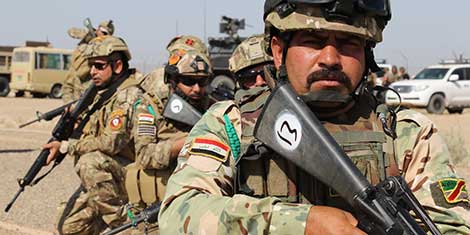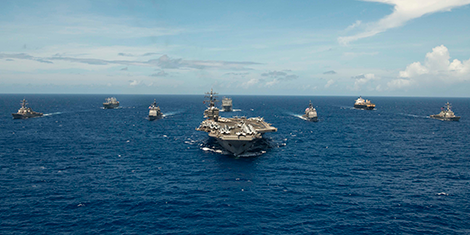Am Donnerstag, 30. April 2020, führte das Center for Security Studies (CSS) der ETH Zürich das zweite CSS Brown Bag Webinar durch. Michael Haas und Niklas Masuhr präsentieren ihr Kapitel “US-China Relations and the Spectre of Great Power War” aus der kürzlich erschienen CSS Jahrespublikation Strategic Trends 2020. Im Vordergrund stand dabei die Frage, wie wahrscheinlich eine kriegerische Auseinandersetzung zwischen den USA und China heute ist.
Tag: War

This article was originally published by the Peace Research Institute Oslo (PRIO) in June 2019.
The number of armed conflicts in 2018 was slightly higher than 2017 and much higher than ten years ago, but the number of fatalities occurring in these conflicts was below average for the post–Cold War period. A key issue remains internationalized conflicts – civil wars with external parties involved – where a majority of fatalities in 2018 has been recorded.

This article was originally published in The Strategist by the Australian Strategic Policy Institute on 13 February 2019.
Paul Dibb, in his recent Strategist post, writes that America’s strategic position in Asia would be fatally undermined if it didn’t go to war with China if China attacked Taiwan, and that Australia’s alliance with America would be fatally undermined if we didn’t then go to war with China too. The conclusion he draws is that, in the event of an unprovoked Chinese attack on Taiwan, America should go to war with China, and so should Australia.

This article was originally published by IPI Global Observatory on 4 December 2017.
The International Criminal Court (ICC) is set to gain jurisdiction over the crime of aggression. For the first time since the end of World War II, world leaders could be held accountable for waging war. States parties are expected to vote on an amendment that will close the last major gap in the court’s founding treaty, extending the ICC’s jurisdiction beyond the crimes of genocide, crimes against humanity, and war crimes. Should the amendment be activated, however, the hurdles to its application, interpretations of its meaning, and the political interests involved cast doubt on whether aggression will be prosecuted any time soon.

This article was originally published by the World Policy Blog on 28 September 2017.
As the rhetoric and warlike maneuvers of the U.S. and North Korea accelerate, the media are increasingly considering the prospect of “accidental” war between the U.S. and North Korea. But if war does start, it will not be accidental. It depends on deliberate choices by both sides about whether to escalate violence or pull back and reassess. Those choices are made by politicians, who are often swayed by domestic political pressures.
The myth of accidental war is a pernicious consequence of liberal international relations theory, which argues that since the consequences of war are so horrendous, no sane person would willfully choose war. Therefore, war occurs only when “madmen,” like Hitler, are in power, or when otherwise rational leaders miscalculate the consequences of their actions. My blog last week argued that the U.S. may be slipping into war with North Korea, but it is important to understand that if it does happen, it is not accidental. It is a product of choices being made now that people and leaders need to be responsible about.
